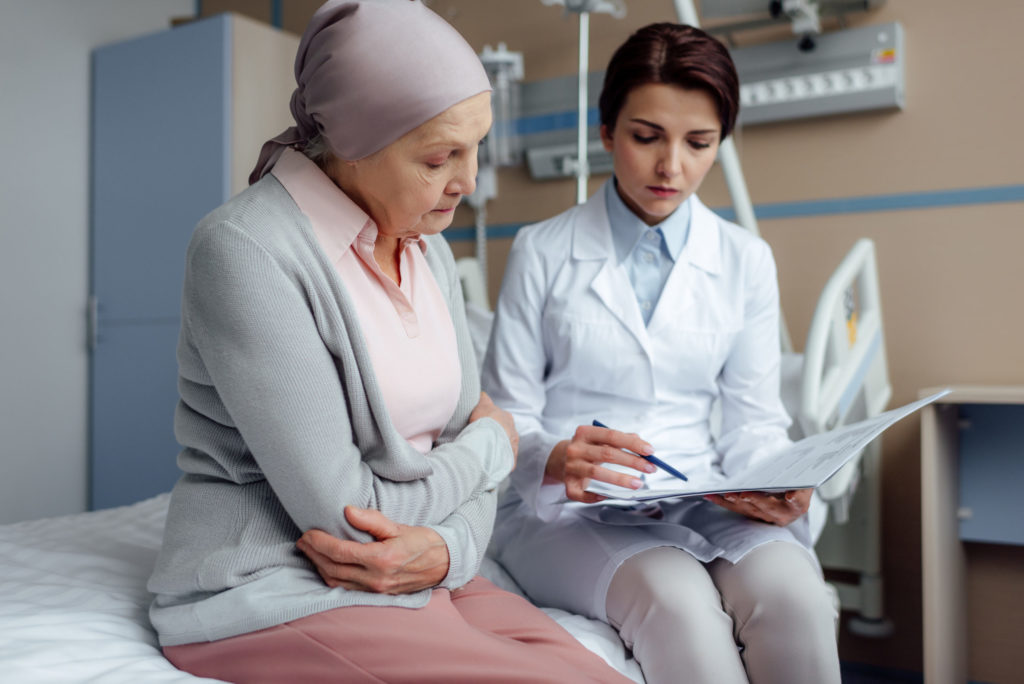
That’s especially true for cancer patients in Latin America, who are finding diagnosis and treatment blocked due to COVID-19 challenges in the health care system.
Some patients have put off wellness exams or dismissed symptoms because they are worried about contracting the COVID-19 in a clinic or hospital. Others have seen their normal care facilities shut down by government mandates or the financial impact of canceled appointments and procedures. One study in Colombia, for example, found that almost six out of 10 cancer patients reported trouble accessing health services.
Cancer in Latin America
Gaps in care are no small matter for the region, which saw about 1.4 million new cancer cases in 2018. In fact:
Delayed Diagnosis
The pandemic stands to exacerbate cancer challenges by making it more difficult for Latin Americans to receive a timely diagnosis and proper care.
In Brazil, for example, restrictive measures intended to reduce virus contagion limited patient access to diagnosis reference centers in 2020. In response, the nationwide number of documented cancer cases plunged by 35.5% compared to the previous year.
That’s about 15,000 undiagnosed cases of cancer per month.
Psychological & Emotional Wellbeing
The pandemic has also affected the psychological and emotional wellbeing of cancer patients. Often isolated from family and friends by lockdowns and self-quarantine, patients have experienced increased feelings of fear, panic, vulnerability and loss of control.
COVID-related isolation has also resulted in fewer patients enrolled in clinical trials, a pivotal support for cancer research and innovation.
Advocacy & Awareness
As highlighted by a recent Global Alliance for Patient Access webinar, patient groups share common concerns about access to treatment.
Representatives of cancer patient groups from Argentina, Brazil, Colombia, Mexico and Canada agreed that:
As the pandemic makes Latin American cancer patients’ uphill battle even tougher, it is crucial that health care systems and policymakers prioritize access to cancer care.
Recent Posts

Global Alliance for Patient Access
© 2024 GAfPA. All Rights Reserved
| Cookie | Duration | Description |
|---|---|---|
| cookielawinfo-checkbox-analytics | 11 months | This cookie is set by GDPR Cookie Consent plugin. The cookie is used to store the user consent for the cookies in the category "Analytics". |
| cookielawinfo-checkbox-functional | 11 months | The cookie is set by GDPR cookie consent to record the user consent for the cookies in the category "Functional". |
| cookielawinfo-checkbox-necessary | 11 months | This cookie is set by GDPR Cookie Consent plugin. The cookies is used to store the user consent for the cookies in the category "Necessary". |
| cookielawinfo-checkbox-others | 11 months | This cookie is set by GDPR Cookie Consent plugin. The cookie is used to store the user consent for the cookies in the category "Other. |
| cookielawinfo-checkbox-performance | 11 months | This cookie is set by GDPR Cookie Consent plugin. The cookie is used to store the user consent for the cookies in the category "Performance". |
| viewed_cookie_policy | 11 months | The cookie is set by the GDPR Cookie Consent plugin and is used to store whether or not user has consented to the use of cookies. It does not store any personal data. |